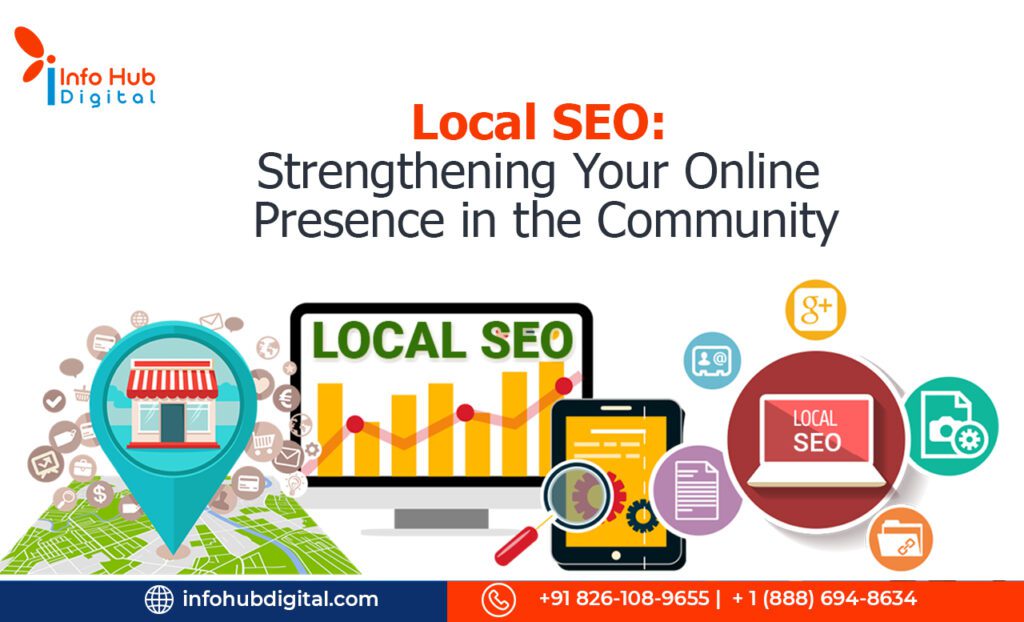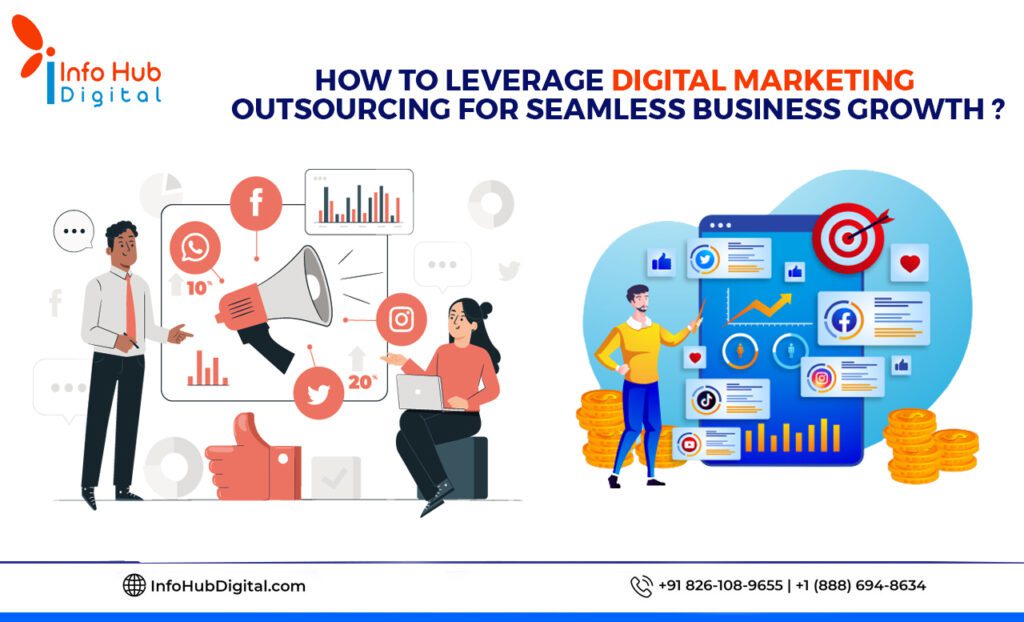In today’s digital landscape, where online interactions often shape offline decisions, local businesses need to focus on more than just global search engine optimization (SEO). The emergence of local SEO has opened doors to enhanced community engagement and visibility. This article delves into the intricacies of local SEO, elucidating how it can bolster your online presence within your community.
Table of Contents
I. Introduction
A. The Significance of Local SEO In a world of information overload, local SEO acts as a guiding beacon, leading potential customers directly to your business when they search for services within their locality.
B. Connecting Online and Offline Worlds Local SEO bridges the gap between virtual and physical spaces, ensuring that businesses are discoverable not just in search engine results, but also on maps and directories.
II. Understanding Local SEO
A. Definition and Scope Local SEO involves optimizing digital assets to appear prominently in local search results, connecting nearby customers with nearby businesses.
B. Importance of Geo-Targeting Geo-targeting narrows down the focus, ensuring that your efforts reach the right audience within a specific geographic radius.
C. Differentiating Local and Organic SEO Local SEO emphasizes geographical relevance and community integration, distinguishing it from broader organic SEO strategies.
III. Foundational Elements of Local SEO
A. Google My Business Optimization Claiming and optimizing your Google My Business listing is a cornerstone, providing essential information like your address, phone number, and business hours.
B. NAP Consistency (Name, Address, Phone) Maintaining consistent NAP details across all online platforms builds credibility with search engines and potential customers.
C. Local Keyword Research Thorough research of location-specific keywords empowers you to align your content with the phrases your community uses.
D. Online Reviews and Reputation Management Positive reviews not only influence customer decisions but also signal to search engines that your business is reputable.
IV. On-Page Optimization for Local SEO
A. Location-Specific Content Craft content tailored to local interests and needs, showcasing your connection to the community.
B. Structured Data Markup Implement structured data markup to provide search engines with rich snippets of information, like business hours and reviews.
C. Mobile-Friendly and Fast Website An optimized mobile experience and swift loading times enhance user satisfaction and search engine rankings.
D. URL Structure and Internal Linking Incorporate local keywords into your URL structure and strategically link relevant pages within your site.
V. Off-Page Factors in Local SEO
A. Local Citations and Directories Listing your business on local directories and citation platforms strengthens your online footprint and validates your local presence.
B. Inbound and Outbound Hyperlocal Links Engage in hyperlocal link building, connecting with neighboring businesses and local influencers to foster a sense of community online.
C. Social Media Engagement and Local Outreach Actively engaging with the local community on social media platforms can lead to increased visibility and brand recognition.
D. Guest Blogging for Community Visibility Contributing insightful articles to local blogs not only establishes you as an industry expert but also deepens your community ties.
VI. Technical Considerations for Local SEO
A. XML Sitemap with Geolocation Tags Enhance search engine crawlers’ understanding of your website’s geographical relevance by including location tags in your XML sitemap.
B. Accelerated Mobile Pages (AMP) Implement AMP to ensure fast-loading mobile pages, delivering a seamless browsing experience to users on-the-go.
C. SSL Security and HTTPS Implementation Secure your website with SSL certification, instilling trust in both visitors and search engines while also being a ranking factor.
D. Schema Markup for Business Details Schema markup provides search engines with structured data about your business, aiding in better search result displays.
VII. Local Content Strategy
A. Crafting Location-Specific Landing Pages Create landing pages that address the unique needs and interests of different neighborhoods within your community.
B. Showcasing Community Involvement Highlight your participation in local events, charities, and initiatives, showcasing your commitment to the community.
C. Highlighting Local Events and News Keep your audience informed about local events, news, and developments, positioning your brand as a hub of local information.
D. User-Generated Content and Testimonials Encourage customers to share their experiences through testimonials and user-generated content, fostering authenticity and community engagement.
VIII. Leveraging Online Reviews
A. Managing and Responding to Reviews Swiftly respond to both positive and negative reviews, showcasing your dedication to customer satisfaction.
B. Encouraging Customer Feedback Actively request customer feedback, not only for improvement but also for showing your customers that their opinions matter.
C. Integrating Reviews on Website Incorporate positive reviews on your website to provide social proof and encourage visitor trust and engagement.
IX. Monitoring and Analytics
A. Tracking Local Keyword Rankings Regularly monitor your local keyword rankings to assess the effectiveness of your strategies and make necessary adjustments.
B. Analyzing Traffic Sources and Behavior Understand where your website traffic is coming from and how visitors interact with your site to optimize user experience.
C. Measuring Click-to-Call and Direction Requests Analyze metrics such as click-to-call actions and direction requests to gauge the effectiveness of your local SEO efforts.
D. Google Analytics and Google Search Console Leverage Google Analytics and Search Console to gain insights into your website’s performance and identify areas for improvement.
X. Evolving Trends in Local SEO
A. Voice Search and Mobile-First Indexing As voice search gains prominence, optimizing for conversational queries becomes pivotal. Mobile-first indexing underscores the importance of mobile optimization.
B. Google’s Local Search Algorithms Stay updated on Google’s ever-evolving local search algorithms to ensure your strategies align with the latest trends.
C. Hyperpersonalization and Beacon Technology Personalized experiences through beacon technology enable tailored offers and notifications for visitors in proximity.
D. Visual Search and Augmented Reality The rise of visual search and AR technologies opens avenues for interactive and visually immersive local SEO strategies.
Conclusion :
In today’s competitive business landscape, harnessing the power of local SEO is paramount. At Info Hub Digital, a pioneering digital marketing services provider in India and the USA, we specialize in enhancing your online presence within your community. Our expert team employs the latest techniques to ensure your business stands out, making us the best Local SEO services provider agency in India. Strengthen your community ties and boost your online visibility with Info Hub Digital today. Your success is our commitment.







